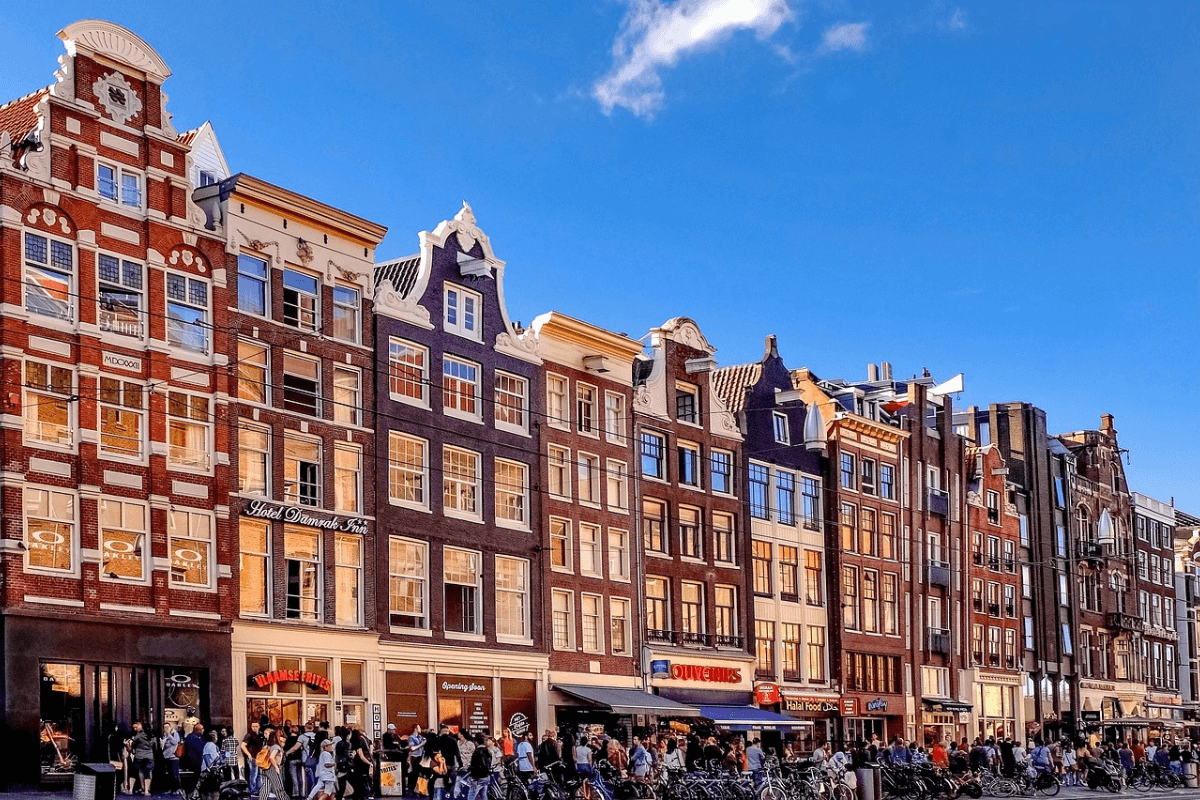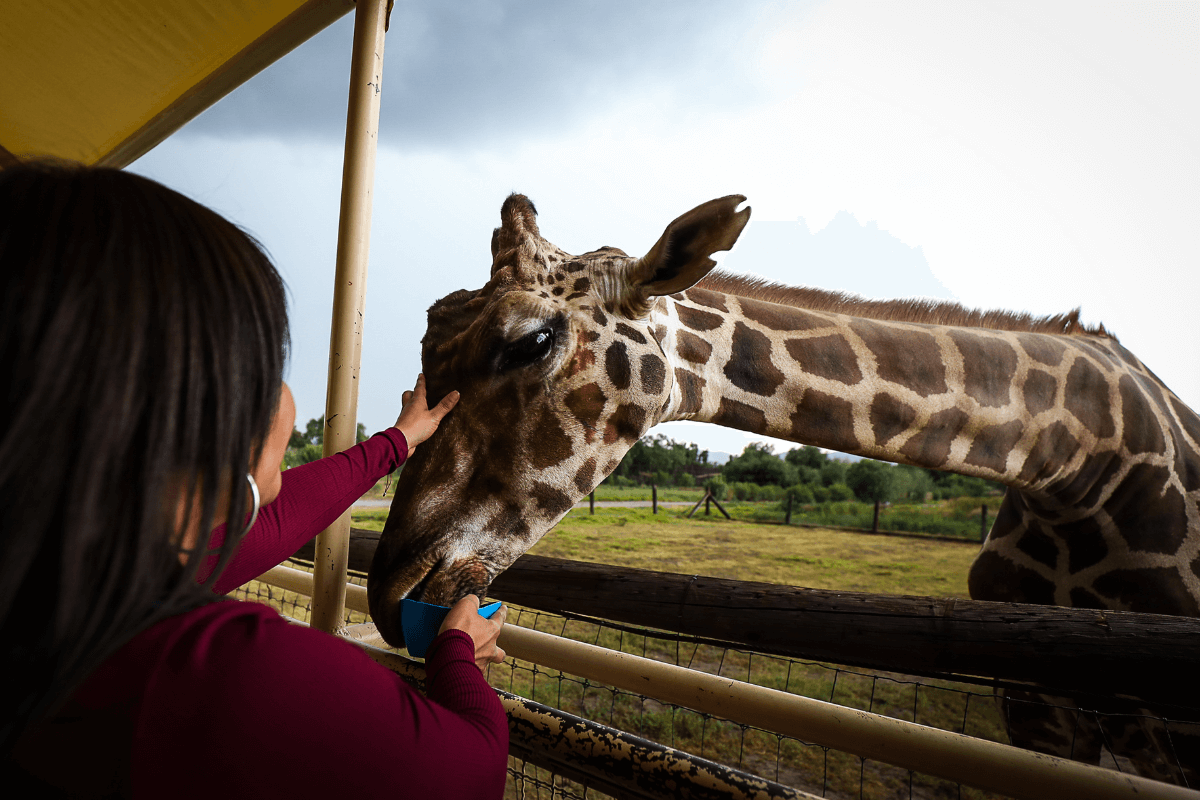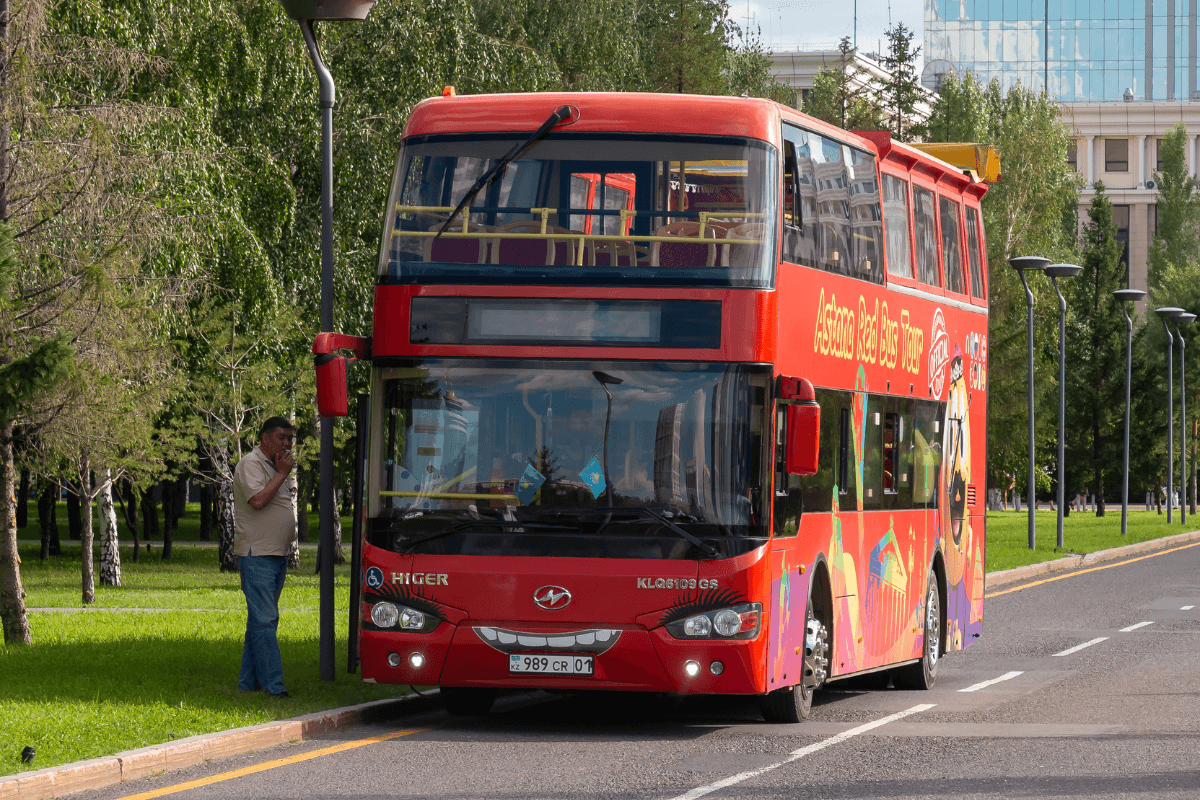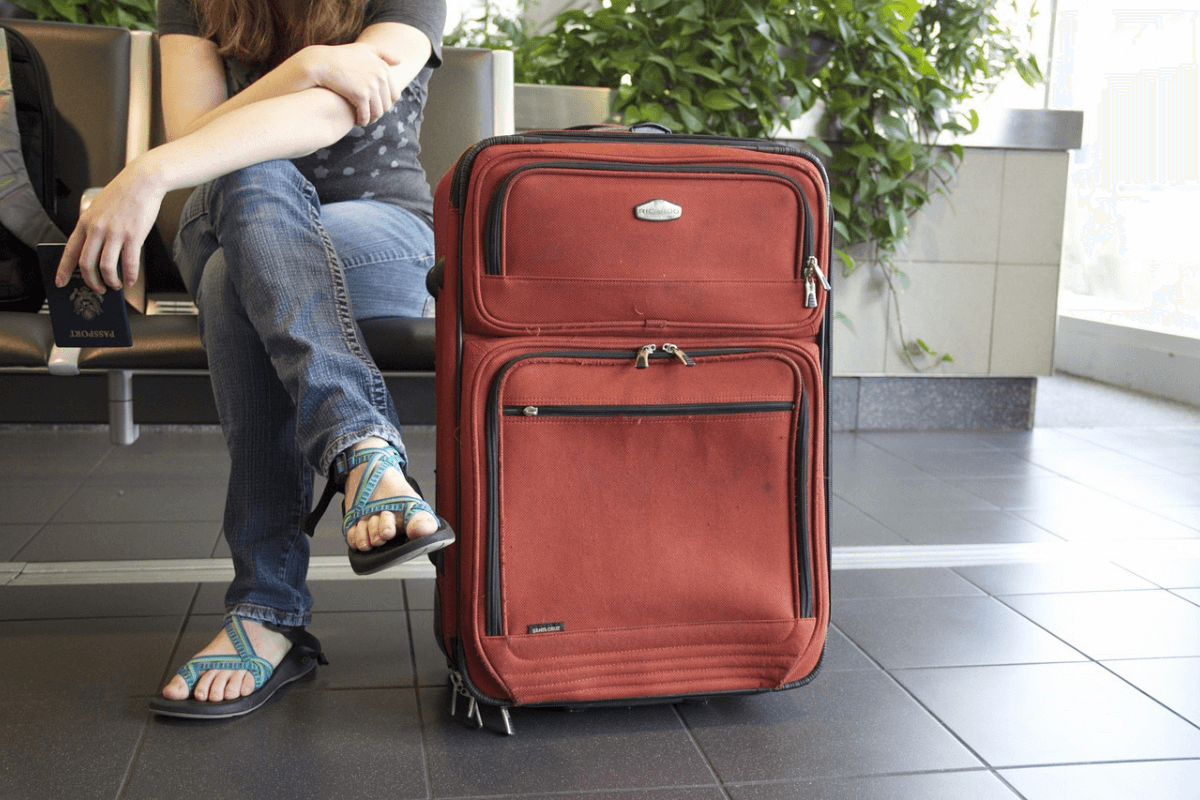Who doesn’t love a good vacation?
In our fast-paced world, stepping away from the daily grind isn’t just a luxury, it’s a necessity.
Whether it’s a quick “weekender” to recharge, a long-awaited “voyage” across the seas, or a cozy “staycation” at home, time off comes in all shapes and sizes.
Over the years, people have come up with loads of slang words for vacation. Some are fun, some quirky, but all capture that sense of escape and adventure.
Here are some of the best ways we talk about getting away!

Slang For Vacation
Adventure

An “adventure” refers to a trip or journey filled with excitement, new experiences, and the thrill of the unknown.
Whether it’s hiking up a mountain or exploring a new city, an adventure is all about stepping outside of your comfort zone and embracing the unpredictability of travel.
Examples in sentences:
- “We went on an adventure through the jungles of Costa Rica.”
- “Their road trip across Europe was the ultimate adventure.”
- “She’s always dreaming of a new adventure to embark on.”
- “The mountain trek turned out to be the adventure of a lifetime.”
- “An adventure doesn’t always need to be far away—sometimes it’s just a new experience in your own city.”
Break

A “break” is a brief pause from work, school, or daily life.
It’s a chance to recharge, relax, and refresh, whether it’s a long weekend or just a few hours to yourself.
It’s perfect for recharging your batteries without taking a full vacation.
Examples in sentences:
- “I can’t wait to take a break from work this weekend.”
- “Taking a break in the middle of the day helps me stay productive.”
- “A short break by the beach is just what I need.”
- “She took a well-deserved break after weeks of hard work.”
- “Sometimes a break is all you need to clear your mind.”
City Break

A “city break” refers to a quick trip to a city, often over a weekend, to explore its attractions, culture, and vibrant atmosphere.
Whether you’re strolling through museums, enjoying local cuisine, or shopping in trendy districts, a city break offers a brief but enjoyable escape.
Examples in sentences:
- “We’re planning a city break to Paris this spring.”
- “A weekend city break is the perfect way to recharge.”
- “She’s always up for a city break to explore new places.”
- “I love how much a city break can offer in such a short time.”
- “A city break is great for those who want to experience a new culture without committing to a longer trip.”
Escape

An “escape” refers to escaping from everyday life, typically to a relaxing or exciting destination.
It’s a way to temporarily leave behind work, stress, and obligations, and embrace rest, adventure, or exploration.
Examples in sentences:
- “I need an escape to a quiet cabin in the mountains.”
- “A weekend escape to the beach was exactly what I needed.”
- “They took a spontaneous escape to the countryside for some peace and quiet.”
- “The city is so hectic—I’m craving an escape to somewhere calm.”
- “After a busy week, an escape to the spa is the perfect remedy.”
Excursion
An “excursion” refers to a brief trip or outing that is often planned for a particular purpose, like sightseeing, adventure, or cultural exploration.
Excursions can range from guided tours to impromptu day trips, offering a fun way to discover new places and experiences.
Examples in sentences:
- “We went on a hiking excursion through the national park.”
- “A day excursion to the museum was the highlight of our trip.”
- “They planned an excursion to the nearby islands during their vacation.”
- “The excursion was packed with exciting activities like kayaking and wildlife spotting.”
- “He loves taking excursions to hidden gems that tourists rarely visit.”
Expedition
An “expedition” refers to a journey or trip, usually one that is longer in duration and has a specific purpose, like exploration or adventure.
While it can involve a sense of discovery, expeditions are often more structured and planned than other vacations.
Examples in sentences:
- “They went on an expedition to the Arctic to study wildlife.”
- “The Amazon expedition was an unforgettable experience.”
- “Their expedition through the desert took several weeks.”
- “An expedition into the mountains is always a test of endurance.”
- “He’s planning a scientific expedition to explore new regions of the ocean.”
Furlough
“Furlough” refers to a period of time when an employee is temporarily off work, usually without pay, but with the possibility of returning.
This time off can be used for personal vacations, rest, or even extended travel.
Examples in sentences:
- “He’s on furlough for the next month, so he’s planning a long road trip.”
- “She used her furlough to visit her family overseas.”
- “During his furlough, he traveled to several countries.”
- “Furlough gave him the chance to unwind and focus on personal goals.”
- “Many workers look forward to furlough time for much-needed breaks.”
Gap Year
A “gap year” is a period of time taken off between significant life events, like high school and university, where individuals often travel, volunteer, or gain work experience.
It’s an opportunity for self-discovery, adventure, and building new experiences before diving into the next chapter of life.
Examples in sentences:
- “She’s planning a gap year to backpack through Southeast Asia.”
- “Taking a gap year can be a great way to explore the world before university.”
- “Many students opt for a gap year to gain work experience or travel.”
- “A gap year gave him the chance to reflect on his goals for the future.”
- “After high school, they took a gap year to explore different cultures.”
Getaway
A “getaway” refers to a short trip, often to a place where you can relax and unwind, away from the stresses of daily life.
It could be a weekend retreat, a visit to a nearby town, or a brief beach escape—anything that provides a change of scenery and a break from routine.
Examples in sentences:
- “We’re heading to the mountains for a quick getaway this weekend.”
- “They planned a romantic getaway to a cozy cabin by the lake.”
- “A beach getaway is exactly what I need to recharge.”
- “She’s always up for a spontaneous getaway to clear her mind.”
- “The getaway was perfect for relaxing and disconnecting from everything.”
Grand Tour
A “grand tour” refers to a long, often extravagant journey to multiple destinations, typically for leisure or education.
Traditionally, these tours were taken by young Europeans in the 17th and 18th centuries as a rite of passage.
Today, the term is used for long and lavish vacations that involve multiple countries or cities.
Examples in sentences:
- “They’re planning a grand tour of Europe next summer.”
- “A grand tour of Asia is on his bucket list.”
- “The grand tour took them to five countries in just two weeks.”
- “It was a dream come true to take a grand tour of historic landmarks.”
- “Her grand tour of the United States covered both coasts.”
Holiday
“Holiday” refers to a break from work or everyday life, often for travel or relaxation.
It’s commonly used in many countries to refer to vacations or trips, especially in the UK.
Whether you’re on a beach holiday or a cultural city holiday, it’s all about getting away to recharge.
Examples in sentences:
- “We’re going on a holiday to the countryside next month.”
- “She’s planning a summer holiday with her friends in Greece.”
- “A beach holiday is perfect for unwinding and soaking up the sun.”
- “They took a holiday in Spain last year to enjoy the local culture.”
- “A family holiday in the mountains is always fun and adventurous.”
Jaunt
A “jaunt” is a quick, often casual trip, usually taken for fun or to explore.
It’s not as long or elaborate as a full vacation, but it’s a nice little getaway from your usual routine.
A jaunt can be a weekend adventure or a day trip to a nearby destination.
Examples in sentences:
- “We’re going on a jaunt to the beach this afternoon.”
- “He took a jaunt to the mountains to escape the city hustle.”
- “The jaunt to the nearby town was the perfect way to spend the weekend.”
- “She enjoys taking short jaunts around the city to explore new spots.”
- “Their jaunt through the countryside was peaceful and refreshing.”
Jolly
“A “jolly” typically refers to a fun, cheerful outing, usually with friends or family.
It’s about having a good time, being carefree, and making the most of your time off.
The term is often used in the UK, especially for group holidays or trips where everyone has a great time together.
Examples in sentences:
- “We had a jolly time on our weekend getaway to the beach.”
- “The whole family went on a jolly trip to the countryside.”
- “They’re planning a jolly vacation to the mountains next month.”
- “The jolly road trip was filled with laughter and adventure.”
- “We’re all excited for the jolly holiday celebration next week.”
Junket
A “junket” is a trip that is often financed by someone else, typically for leisure or work purposes.
While it may be associated with business or media professionals, it’s also used to describe lavish trips that people take as a reward or a break from the regular routine.
Examples in sentences:
- “The company sent the executives on a junket to the Bahamas.”
- “They went on a junket to Paris, all expenses paid!”
- “After a tough year, she treated herself to a luxury junket to the Alps.”
- “The press junket involved interviews and events in New York City.”
- “He went on a junket to Las Vegas, courtesy of his company.”
Leave
“Leave” is simply a time off from work, either for vacation, illness, or personal matters.
It’s commonly used in formal contexts, particularly in offices or workplaces.
Whether it’s annual leave, sick leave, or personal leave, it allows you time to recharge.
Examples in sentences:
- “I’m taking a week of leave to visit my family next month.”
- “She requested leave for a vacation in Italy.”
- “The company grants employees 15 days of paid leave per year.”
- “He took leave to deal with some personal matters.”
- “Leave was granted for their honeymoon after the wedding.”
Mini-Break
A “mini-break” is a shorter version of a vacation. It usually lasts for a few days or a weekend and is designed for a quick escape.
Whether it’s to a nearby city or a relaxing retreat, a mini-break allows you to get away without taking too much time off.
Examples in sentences:
- “We’re planning a mini-break to the coast this weekend.”
- “A mini-break in the countryside is just what I need to recharge.”
- “They’re having a mini-break in the city to explore the museums.”
- “A mini-break to the beach is the perfect way to escape the hustle and bustle.”
- “She treated herself to a mini-break at a luxury hotel.”
Odyssey
An “odyssey” is a term borrowed from the epic tale of Homer’s *Odyssey*, referring to a long and adventurous journey.
While it’s most commonly used in a literary or historical sense, it can also refer to any long journey filled with exploration, discovery, or challenges.
Examples in sentences:
- “Their road trip turned into an epic odyssey across the continent.”
- “He went on an odyssey through Asia, visiting temples and ancient cities.”
- “Her journey through Europe was more of an odyssey than a vacation.”
- “A backpacking odyssey through South America is on my bucket list.”
- “The family’s odyssey took them through jungles, mountains, and beaches.”
Road Trip

A “road trip” refers to a journey taken by car, often over long distances and across multiple destinations.
It’s the ultimate symbol of freedom, adventure, and exploration, where the journey is as important as the destination.
Examples in sentences:
- “They’re planning a road trip across the United States this summer.”
- “We went on a spontaneous road trip to the mountains last weekend.”
- “A road trip along the coast is the perfect way to see the country.”
- “He loves the idea of a road trip with no particular destination in mind.”
- “Their road trip took them through several small towns and national parks.”
Safari

A “safari” originally referred to a journey in Africa to observe and hunt wild animals, but nowadays, it’s more commonly used for trips focused on wildlife viewing.
Safaris typically take place in national parks or wildlife reserves and are known for offering a unique experience of nature and adventure.
Examples in sentences:
- “They’re going on a safari in Kenya next month.”
- “A safari through the Serengeti was the highlight of their trip.”
- “We spotted lions and elephants during our safari in Tanzania.”
- “He’s been dreaming of a safari to South Africa for years.”
- “They had a once-in-a-lifetime safari experience in Botswana.”
Schoolies
“Schoolies” refers to the end-of-year celebration for high school graduates, especially popular in Australia.
It involves a trip to the beach or other vacation spots, where students celebrate their newfound freedom after exams.
Examples in sentences:
- “They’re heading to the Gold Coast for their schoolies trip.”
- “Schoolies is known for its beach parties and group getaways.”
- “He’s looking forward to a wild schoolies week with his friends.”
- “The town was packed with schoolies celebrating graduation.”
- “After months of stress, schoolies was the perfect way to relax.”
Staycation
A “staycation” is a vacation where you stay at home or close by, often enjoying local attractions, relaxing, or doing things you wouldn’t typically have time for during a regular week.
It’s the perfect way to unwind without the hassle of travel.
Examples in sentences:
- “They decided to do a staycation and explore the city’s museums.”
- “We’re having a staycation this year and enjoying the local beaches.”
- “A staycation can be just as relaxing as a trip abroad, if not more.”
- “They booked a staycation at a luxury hotel nearby.”
- “With the budget tight, a staycation was the perfect solution.”
Summer Holiday
“Summer holiday” refers to the vacation or break many people take during the warmer summer months.
Whether it’s a week at the beach, an overseas trip, or a road trip, it’s the time of year most closely associated with relaxation and fun.
Examples in sentences:
- “They spent their summer holiday in Spain, soaking up the sun.”
- “A family road trip is always a highlight of the summer holiday.”
- “Her summer holiday plans include lounging at the beach.”
- “They’re going on a summer holiday to Greece next year.”
- “Summer holidays are always filled with adventures and memories.”
Time Off
“Time off” refers to any time taken away from work or responsibilities.
It could be for a vacation, rest, or personal time. People often use time off to recharge and spend time with loved ones, travel, or just relax.
Examples in sentences:
- “She’s taking some time off to relax after a busy few months.”
- “He used his time off to visit family in another city.”
- “They’re planning a trip during their time off from work.”
- “After a hectic work period, everyone deserves some time off.”
- “Time off is essential for maintaining a healthy work-life balance.”
Tour

A “tour” refers to a journey, usually organized by a travel company, that takes you through multiple locations.
It’s often guided, offering a structured itinerary that lets travelers see and experience a variety of destinations, sometimes with historical or cultural commentary.
Examples in sentences:
- “They went on a European tour and visited Paris, Rome, and Berlin.”
- “We’re joining a guided tour of the ancient ruins in Egypt.”
- “Her dream is to go on a road tour across the United States.”
- “The city tour covered all the must-see landmarks.”
- “He’s taking a tour of the vineyards in France this summer.”
Trip

A “trip” is one of the most commonly used words for a vacation or journey, regardless of the destination or duration.
It could refer to a weekend getaway, a day excursion, or even a longer vacation.
The key is that it’s usually a short, planned adventure.
Examples in sentences:
- “We’re planning a trip to the mountains next weekend.”
- “His business trip took him to New York for three days.”
- “They took a trip to the beach for some much-needed relaxation.”
- “She’s organizing a trip to celebrate her birthday.”
- “Their trip to Japan was filled with amazing sights and experiences.”
Vacay

“Vacay” is a fun, shorthand version of the word “vacation.”
It’s often used to express excitement or informally refer to a break from work or responsibilities.
Whether it’s a spontaneous weekend getaway or an annual holiday, a vacay is all about relaxing and enjoying some time off.
Examples in sentences:
- “They’re going on a beach vacay in the Caribbean next month.”
- “I’m so ready for my summer vacay!”
- “A few days of vacay will do wonders for your stress levels.”
- “We’re having a stay-at-home vacay this year and exploring local sights.”
- “After months of work, it’s time for a proper vacay.”
Voyage
“Voyage” typically refers to a long journey, especially one that involves a sea or air trip.
It can be used to describe both historical explorations and modern travel adventures.
Often, it carries a sense of grandiosity or exploration, taking you to far-off, exotic locations.
Examples in sentences:
- “They embarked on a voyage across the Pacific Ocean.”
- “The voyage to the New World was long and perilous.”
- “Her voyage around the world lasted for several months.”
- “A luxury cruise is often marketed as a voyage of a lifetime.”
- “He’s planning a voyage to the Arctic Circle to see the Northern Lights.”
Weekender
A “weekender” refers to a brief trip, usually taken over the weekend.
It’s a way to escape the routine for a short period, exploring nearby cities, nature spots, or relaxing in a different environment.
Weekenders are perfect for people looking to recharge without taking too much time off.
Examples in sentences:
- “We’re going on a weekender to the countryside this Saturday.”
- “A weekender is a great way to get a change of scenery without using up too many vacation days.”
- “Their weekender was filled with outdoor adventures and relaxation.”
- “A quick weekender to the beach was just what I needed.”
- “He spent the weekender at a spa retreat to unwind.”

